Sharing what I have learned supporting two atypical minds from childhood to adulthood.
Friday, November 22, 2019
Thanksgiving 2019 - update
I guess I gave away the story there. After about a year of working with a personal trainer who is also a CrossFit coach #1 joined my box. He has done better than my fondest hope. Not least because coaches have hit just the right tone ... friendly, supportive, but also treating him much like every other adult. Same for our athletes. The power of expectations is hard to overstate.
And ... special hockey volunteer, plays adult rec hockey with me, works with and rides horses, special olympics snowboarding, power lifting, golf, summer bicycling, works two part-time jobs ...
#2 had his best grade ever on a college exam. His studying is better. Started working in a minimum wage job filling popcorn bags but tells me he doesn't mind the boring work, likes using his hands, likes the money. Managed a challenging problem while working with a supportive teacher that would have melted him a year ago. Taken on a mentoring and support role with his special hockey colleagues. Continues his Tae Kwon Do training.
Both gentlemen are a pleasure to be with.
Twin Cities facility for special needs strength and fitness training
My #1 is doing their special Olympics strength training at Built on Bravery, located at the Mendota Height MN Lions United Fitness Center (map):
... Lions United is a new kind of training center, designed specifically to prepare people with disabilities for exceptional performance in individual competitions, team sports and life, especially people with autism, down syndrome and cerebral palsy. We’re dedicated to Special Olympics’ Project UNIFY and Unified Sports®, which means we bring people of all abilities together to strengthen individuals, relationships and communities....This new facility is first in Minnesota to focus on persons with cognitive disabilities.
The Star Tribune did an interview with the founder:
Q: Membership fees and hours?I think there may also be family memberships.
A: Twenty dollars a month for people with special needs; $40 a month for others. We’ll also have an incentive program where any member can receive up to $20 a month through their insurance. Staffed hours are Monday-Thursday, 3:30 p.m. to 10 p.m.; Friday 8 a.m. to 10 p.m.; Saturday and Sunday 8 a.m. to 6 p.m. But members will have 24-hour access.
There is a big unmet need for health and fitness support of special needs teens and adults. Diets are often worse than average and there are few welcoming places to go. (Several CrossFit gyms are welcoming, but that's a big climb. This facility has grant support.)
We need more like this!
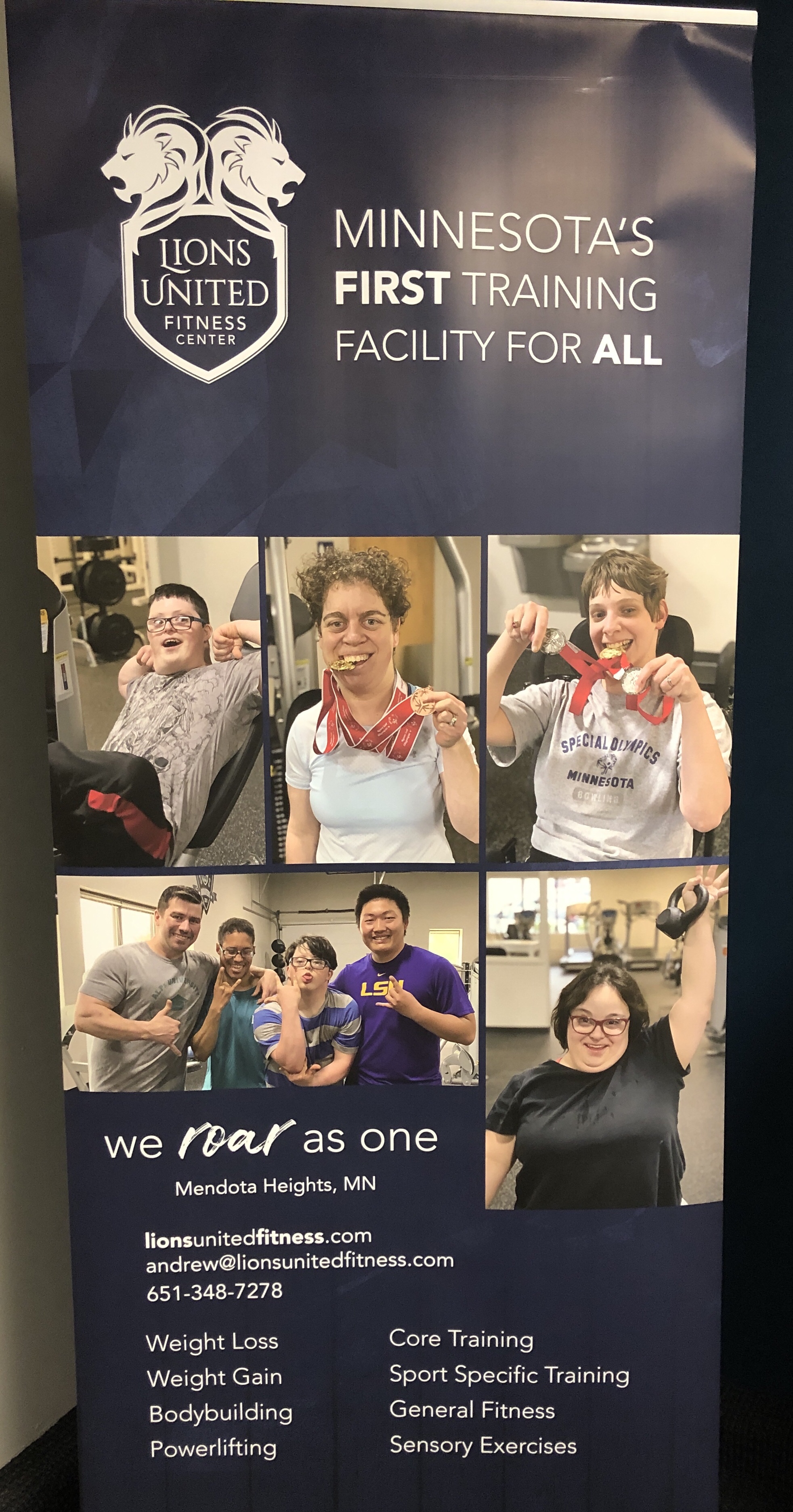
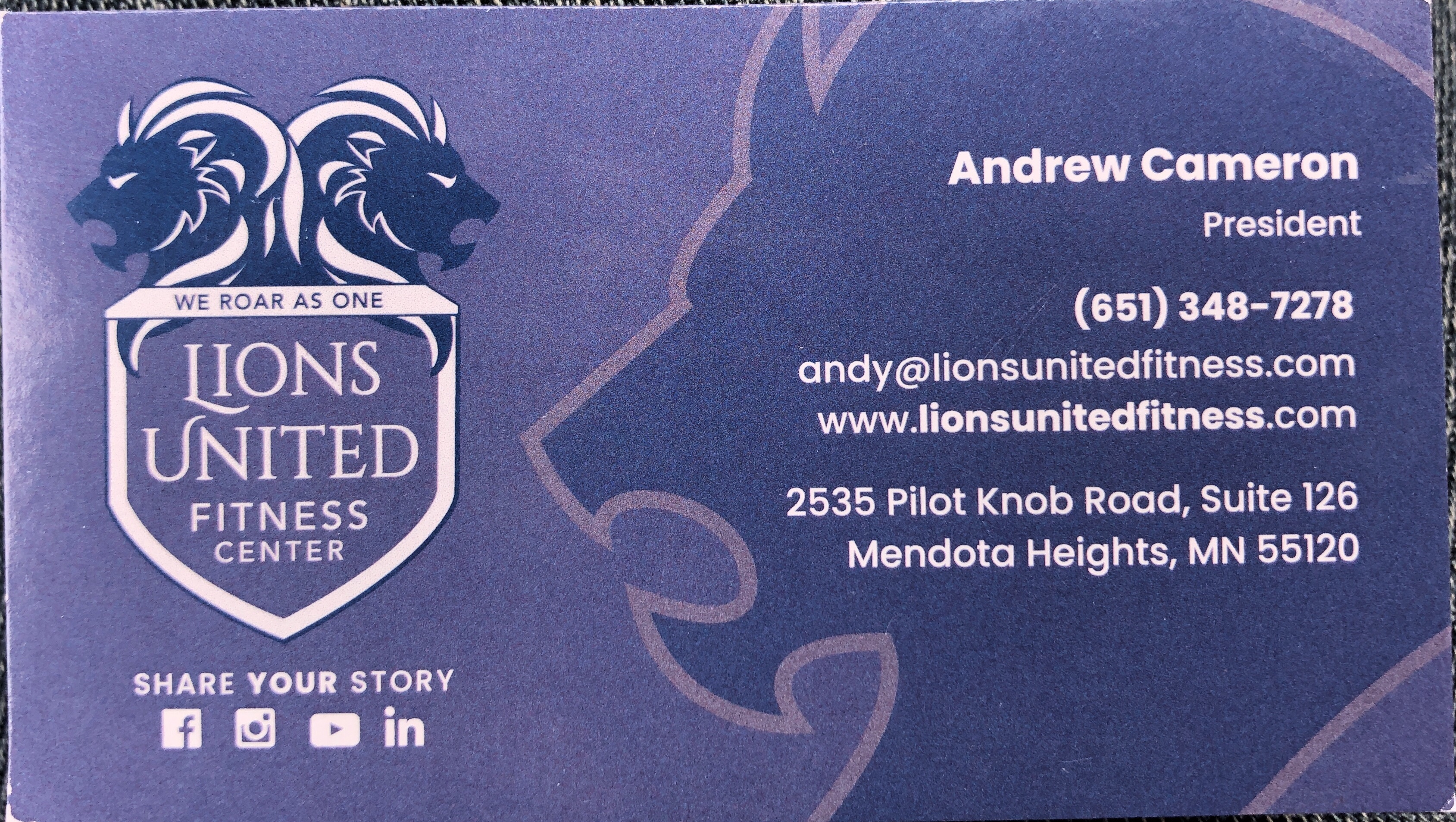
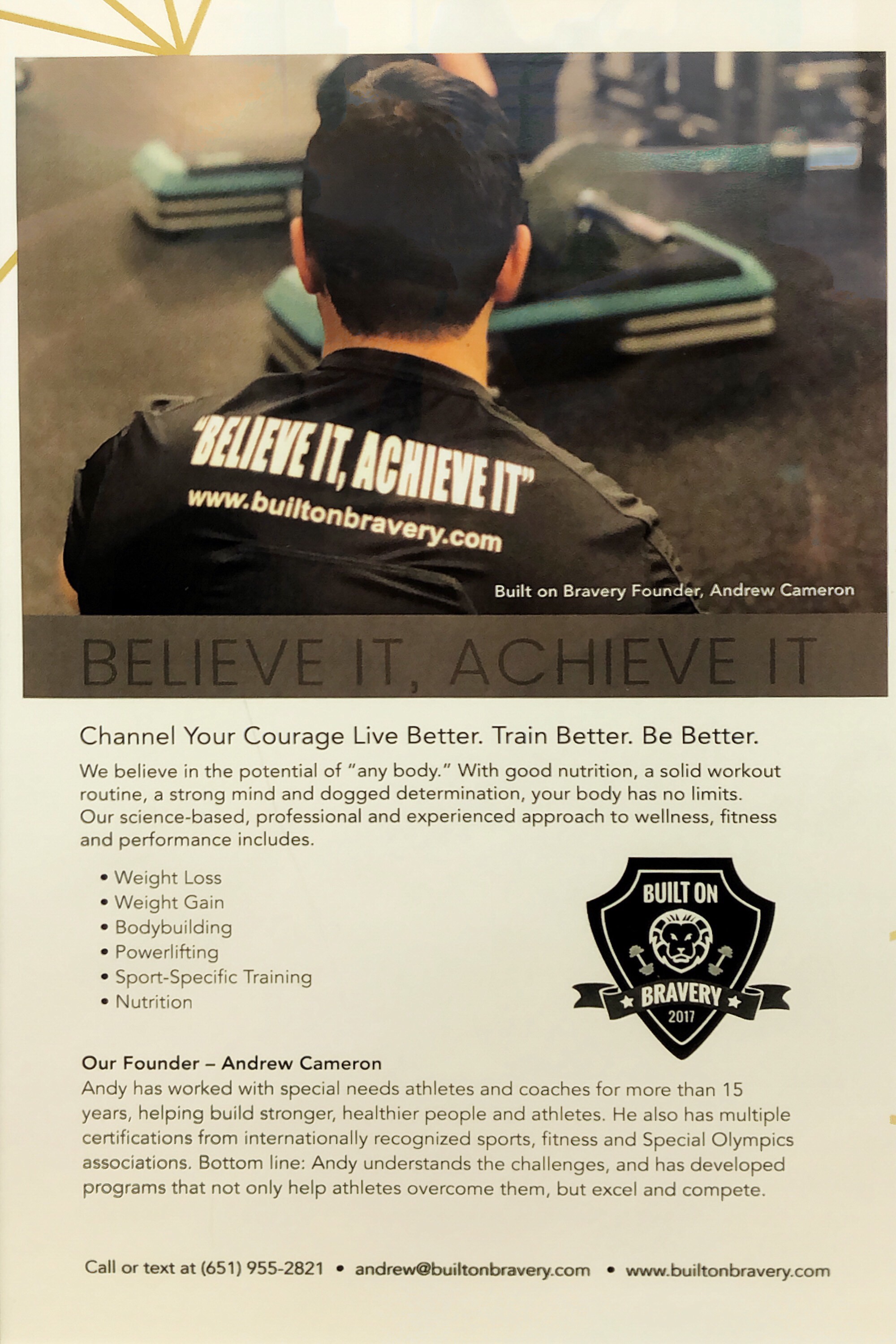
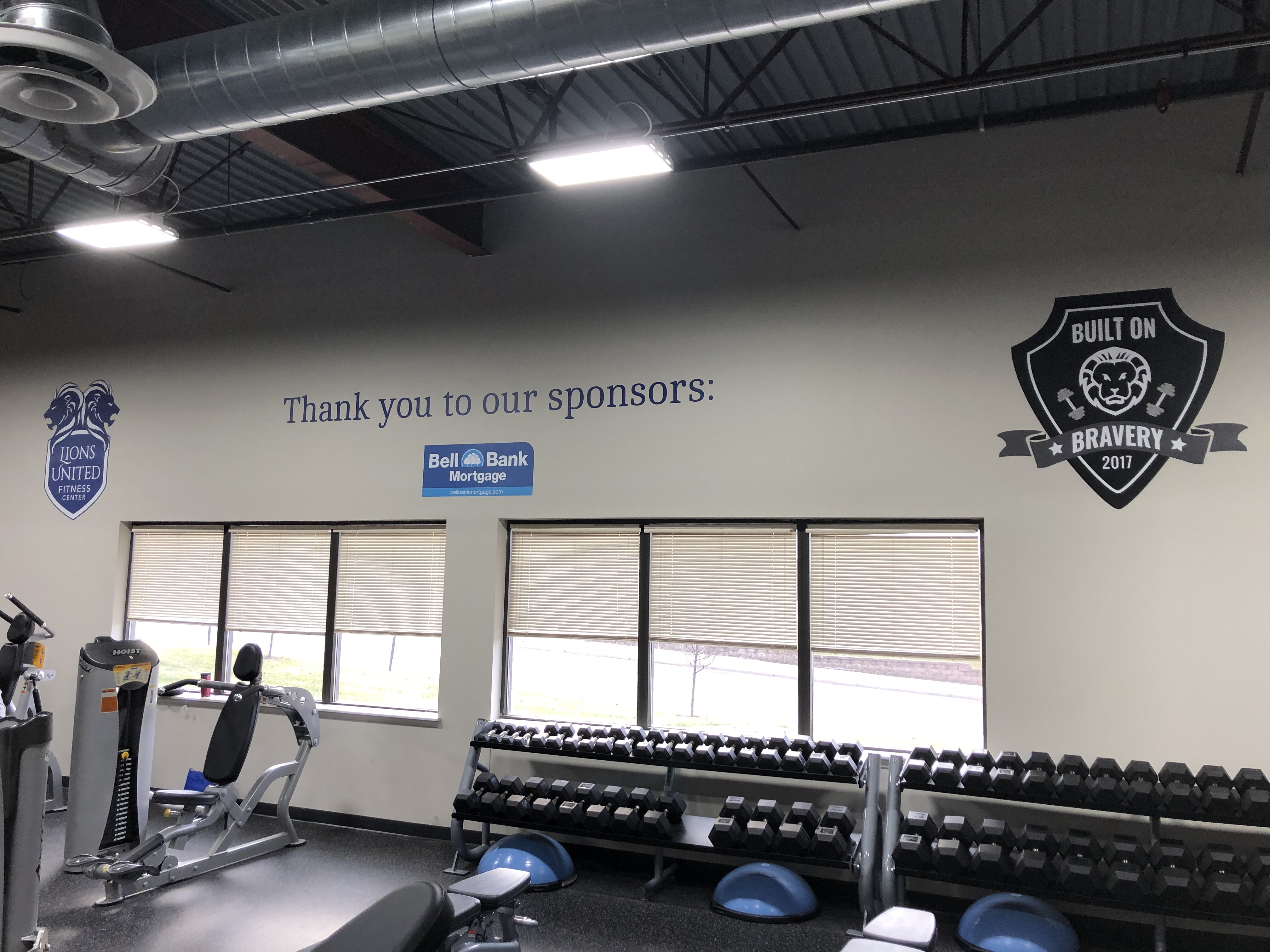
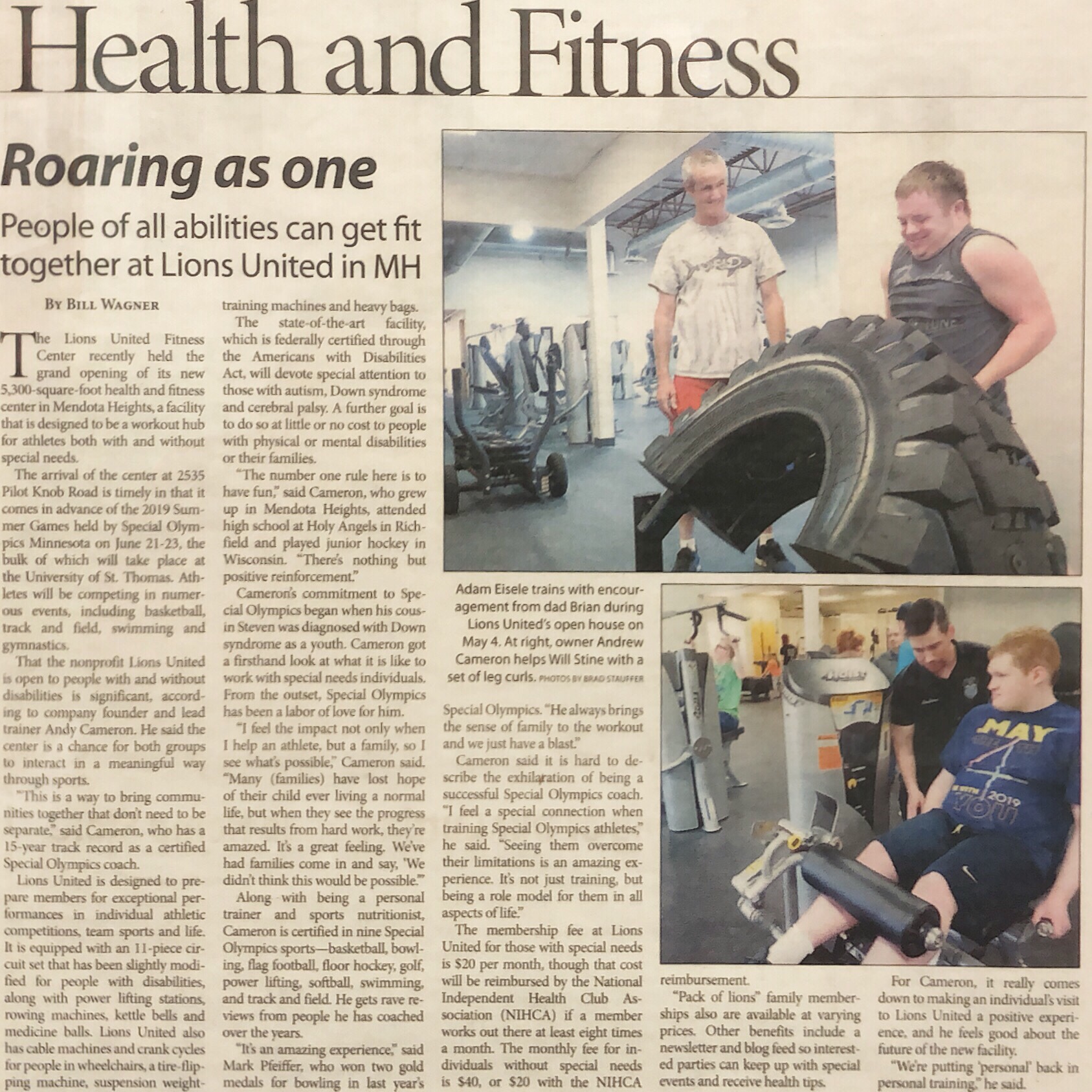
Tuesday, March 12, 2019
A (very) inclusive CrossFit gym - in Reno Nevada
Fitness is a problem for many people, not least special needs teens and adults. Diabetes and obesity are common in our population.
Diet is a factor — it takes a lot of cognitive work to outrun the American junk food industry. The special needs population is vulnerable to deceptive advertising implying health benefits of "sports drinks".
Exercise is also a problem. Special Olympics and Special Hockey programs are low volume — typically once a week. Group classes may be intimidating or unwelcoming. Incomes are low and gyms can be costly [1]. Workout music may be intolerable. The feel and odor of sweat may be unusually bothersome. Lastly, suffering for health is a bit abstract for many with special needs.
Today I learned of an extraordinary example of doing something more ...
Upstate Nevada - CrossFit Everyday Heroes
… Upstate Nevada is the first nonprofit facility for community fitness and is motivated by the philosophy that “nobody should be denied a healthy lifestyle due to physical, cognitive or financial impairments.” ...
… The Upstate Nevada board and staff run a community first, gym second … Inclusive and adaptive programs for any type of physical or mental impairments...
… Our Everyday Heroes program offers free or reduced price memberships for the following ...
-Adults with physical or cognitive impairments and their families
-Children with physical or cognitive impairments and their families
Wow. Very impressive. I’ve seen something a bit like this at CrossFit Icehouse in Fargo ND, but Upstate Nevada is at another level. I hope they share their learnings with the broader health and special needs community.
- fn -
[1] OTOH, adults on disability support often have to spend down to avoid asset caps — exercise classes and personal trainers can be a healthy option.
Sunday, January 27, 2019
How did the story end?
I started writing this particular blog in September of 2004. At that time Explorer #1 was 7 and #2 was 5. They are adults now.
The early years before this blog are a blur now. I think by the time I started writing we had developed a reasonably effective approach and seen some progress. The years between 2000 and 2004 were harder.
We aged a lot in those years.
Now this blog is infrequently updated. That’s partly because of my related book project, partly because adult Explorer challenges are personal, and partly because the complex educational and financial (SSD, etc) challenges we deal with now are managed by my wife — and she doesn’t blog. We’re specialized that way.
So the story continues, but the blogging is less frequent. For the few that have followed this blog I feel like I should provide a summary of sorts. For those who are starting on a similar journey it might help to know one ending, then maybe go back through past posts and pick out things of value.
In general our Explorers have done well. They are both adults, for now both have guardianship status. We have, to date, for the moment, avoided the catastrophes parents of special needs children justly fear.
#1 has cognitive disabilities. Once he was an “explosive child”. Now he reads and even writes a bit, albeit largely on his phone. He has two part time jobs (no benefits) and he has longterm disability status and thus some potential security after our deaths. He’s been a reliable employee. His self-regulation and planning ability continue to improve. He loves his family. His diet could be better; it’s a typical non-college US diet (i.e. terrible). He needs more exercise. He remains a pretty good athlete for someone who rarely practices.
#2 is on the classic autism “spectrum". He is in a post-secondary transition program and is a B/C student at our local community college (he’s fine with a C). Sadly he has shown zero interest in learning coding — the one path I think could lead to his financial independence. He is usually delightful but struggles with novelty, travel, and changes in routine. He has screen time issues but works them. His self-regulation continues to improve. His work capacity is limited, but growing. His diet and exercise are better than the US average. He is kind, sweet, compassionate, and a typical middle sibling peacemaker. His great strength is persistence. He has a bad day, but the next day he tries again.
Were I to have read this in 2002 I think I’d have felt relief. The story doesn’t end until the narrator dies; it could all change at any time. But for now, well enough.